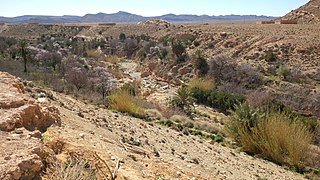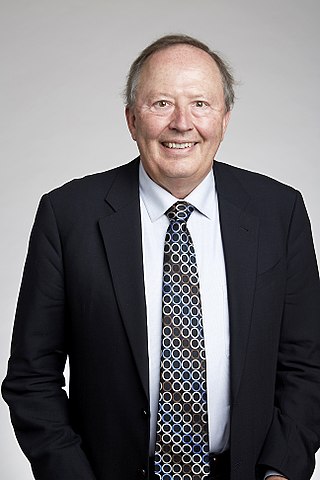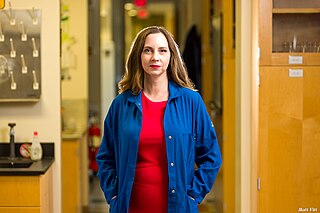Related Research Articles

Deserts and xeric shrublands are a biome defined by the World Wide Fund for Nature. Deserts and xeric shrublands form the largest terrestrial biome, covering 19% of Earth's land surface area. Ecoregions in this habitat type vary greatly in the amount of annual rainfall they receive, usually less than 250 millimetres (10 in) annually except in the margins. Generally evaporation exceeds rainfall in these ecoregions. Temperature variability is also diverse in these lands. Many deserts, such as the Sahara, are hot year-round, but others, such as East Asia's Gobi, become quite cold during the winter.

Fire ecology is a scientific discipline concerned with the effects of fire on natural ecosystems. Many ecosystems, particularly prairie, savanna, chaparral and coniferous forests, have evolved with fire as an essential contributor to habitat vitality and renewal. Many plant species in fire-affected environments use fire to germinate, establish, or to reproduce. Wildfire suppression not only endangers these species, but also the animals that depend upon them.

George David Tilman, ForMemRS, is an American ecologist. He is Regents Professor and McKnight Presidential Chair in Ecology at the University of Minnesota, as well as an instructor in Conservation Biology; Ecology, Evolution, and Behavior; and Microbial Ecology. He is director of the Cedar Creek Ecosystem Science Reserve long-term ecological research station. Tilman is also a professor at University of California, Santa Barbara's Bren School of Environmental Science & Management.
James Michael Russell is an American paleoclimatologist and climatologist. He is a professor of Earth, environmental, and planetary sciences and is currently the senior associate dean of dean of faculty at Brown University. Russell researches the climate, paleoclimate, and limnology.
David A. Hodell, FRS is a British–American geologist and paleoclimatologist. In October 2008, Hodell was appointed to the position of Woodwardian Professor of Geology at the University of Cambridge in the United Kingdom, where he is also a fellow of Clare College. He is a dual citizen of the United Kingdom and the United States. He is also the Director of the Godwin Laboratory for Palaeoclimate Research. Previously, he taught at the University of Florida from 1986–2008, earning the rank of full professor in geological sciences. Hodell was also the director of the Stable Isotope Laboratory from 1996–2008. Hodell earned his Ph.D. in 1986 in oceanography from the Graduate School of Oceanography, University of Rhode Island after earning his bachelor of arts in 1980 in geology from the University of Vermont.

Ecological dominance is the degree to which one or several species have a major influence controlling the other species in their ecological community or make up more of the biomass. Both the composition and abundance of species within an ecosystem can be affected by the dominant species present.

The Biodiversity Indicators Partnership (BIP) brings together a host of international organizations working on indicator development, to provide the best available information on biodiversity trends to the global community. The Partnership was initially established to help monitor progress towards the Convention on Biological Diversity (CBD) 2010 Biodiversity target. However, since its establishment in 2006 the BIP has developed a strong identity not only within the CBD but with other Multilateral Environmental Agreements (MEAs), national and regional governments and other sectors. As a result, the Partnership will continue through international collaboration and cooperation to provide biodiversity indicator information and trends into the future.

Stephen J. O'Brien is an American geneticist. He is known for his research contributions in comparative genomics, virology, genetic epidemiology, mammalian systematics and species conservation. Member of the National Academy of Sciences and a Foreign Member of the Russian Academy of Sciences. Author or co-author of over 850 scientific articles and the editor of fourteen volumes.
In ecology, the term productivity refers to the rate of generation of biomass in an ecosystem, usually expressed in units of mass per volume per unit of time, such as grams per square metre per day. The unit of mass can relate to dry matter or to the mass of generated carbon. The productivity of autotrophs, such as plants, is called primary productivity, while the productivity of heterotrophs, such as animals, is called secondary productivity.
Margaret A. Palmer is a Distinguished University Professor in the Department of Entomology at the University of Maryland and director of the National Socio-Environmental Synthesis Center (SESYNC). Palmer works on the restoration of streams and rivers, and is co-author of the book Foundations of Restoration Ecology. Palmer has been an invited speaker in numerous and diverse settings including regional and international forums, science-diplomacy venues, and popular outlets such as The Colbert Report.

Diana Harrison Wall was an American environmental scientist and soil ecologist. She was the founding director of the School of Global Environmental Sustainability, a distinguished biology professor, and senior research scientist at the Natural Resource Ecology Laboratory at Colorado State University. Wall investigated ecosystem processes, soil biodiversity and ecosystem services. Her research focused on the Antarctic McMurdo Dry Valleys and its Wall Valley was named after her. Wall was a globally recognized leader and speaker on life in Antarctica and climate change.

Kathleen Kay Treseder is an American ecologist who specializes in the interplay between global climate change and fungal ecology. She also serves as a member of the Irvine City Council after being elected to the position in 2022. She is currently a professor in the Department of Ecology and Evolutionary Biology at the University of California, Irvine. She is a Fellow of the American Association for the Advancement of Science, the American Academy of Microbiology, and the Ecological Society of America.
Erika S. Zavaleta is an American professor of ecology and evolutionary biology at the University of California, Santa Cruz. Zavaleta is recognized for her research focusing on topics including plant community ecology, conservation practices for terrestrial ecosystems, and impacts of community dynamics on ecosystem functions.
Ingrid C. "Indy" Burke is the Carl W. Knobloch, Jr. Dean at the Yale School of Forestry & Environmental Studies. She is the first female dean in the school's 116 year history. Her area of research is ecosystem ecology with a primary focus on carbon cycling and nitrogen cycling in semi-arid rangeland ecosystems. She teaches on subjects relating to ecosystem ecology, and biogeochemistry.
Natalie Mahowald is an American Earth scientist who is the Irving Porter Church Professor of Engineering at Cornell University. Her research considers atmospheric transport of biogeochemically-relevant species, and the impact of humans on their environments.
Sandra Gail Biedron is an American physicist who serves as the Director of Knowledge Transfer for the Center for Bright Beams as well as professor in Electrical & Computer Engineering and Mechanical Engineering at the University of New Mexico, where in 2021 she mentors nine graduate students and two post-doctoral researchers. Her research includes developing, controlling, operating, and using laser and particle accelerator systems. She is also Chief Scientist of Element Aero, a consulting and R&D company incorporated in 2002. She was elected Fellow of the American Physical Society in 2013.
Liza Sheera Comita is an American ecologist and Professor of Tropical Forest Ecology in the School of the Environment at Yale University. Her research focuses on tropical tree species ecology and how spatial and temporal variation in early life-stages affects abundance and diversity of species in tropical forests.

Delphine Farmer is a Canadian chemist who is a professor at the Colorado State University. Her research considers the development of scientific instruments for atmospheric science. She was awarded the American Geophysical Union Atmospheric Sciences Ascent Award in 2022.
Lucy Hutyra is an American urban ecologist who is a professor of earth and environment at Boston University. Her research uses a multi-disciplinary approach to understand the terrestrial carbon cycle. She was named a MacArthur Fellow in 2023.
Vidya Madhavan is an Indian American physicist who is Professor of Condensed Matter at the University of Illinois Urbana-Champaign. Her research considers the spin and charge of quantum materials. She combines high resolution characterization techniques with precise fabrication and growth techniques. She was elected Fellow of the American Physical Society in 2015.
References
- ↑ "Causes and consequences of species invasion and loss: the role of dominant species and diversity in maintaining ecosystem function". lter.konza.ksu.edu. Retrieved 2024-06-23.
- ↑ "Research – Smith Lab". smithlab.colostate.edu. Colorado State University . Retrieved 2024-06-05.
- ↑ "MURRAY F. BUELL AWARD" (PDF). esa.org. Ecological Society of America. 2002.
- 1 2 "Colorado State researcher leads global study of extreme drought impacts on grasslands and shrublands". EurekAlert!. AAAS. 2024-01-08. Retrieved 2024-06-05.
- ↑ "Melinda Smith | Chair, Faculty Council". president.colostate.edu. Retrieved 2024-06-23.
- ↑ "AAAS Names 2023 Fellows". Science . 384 (6694): 396–400. 2024-04-25. doi:10.1126/science.adp9613.